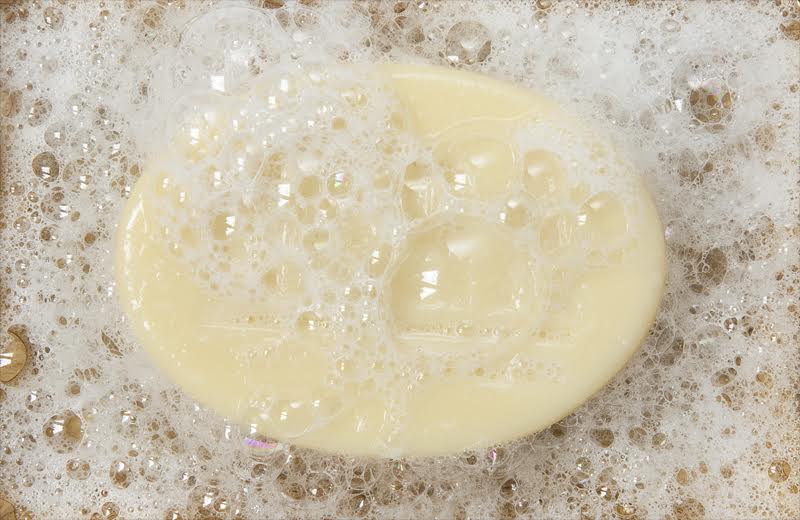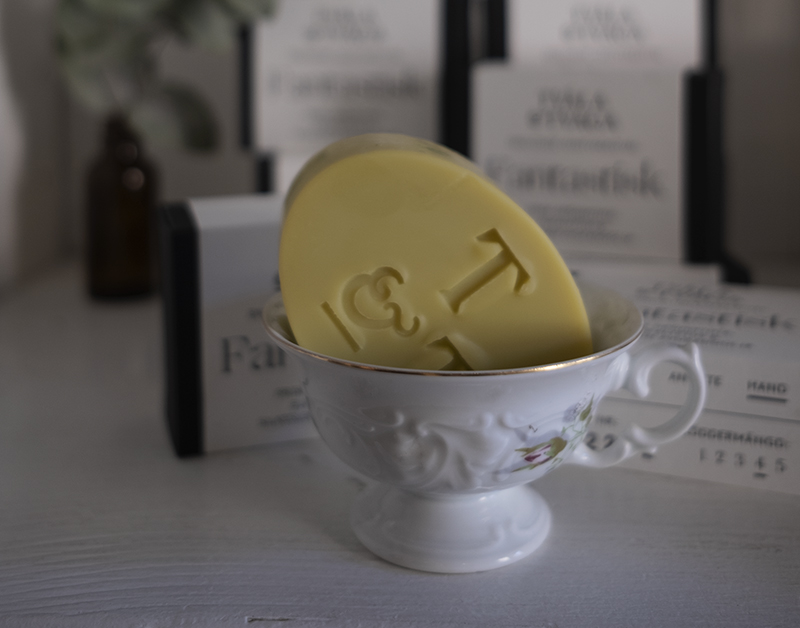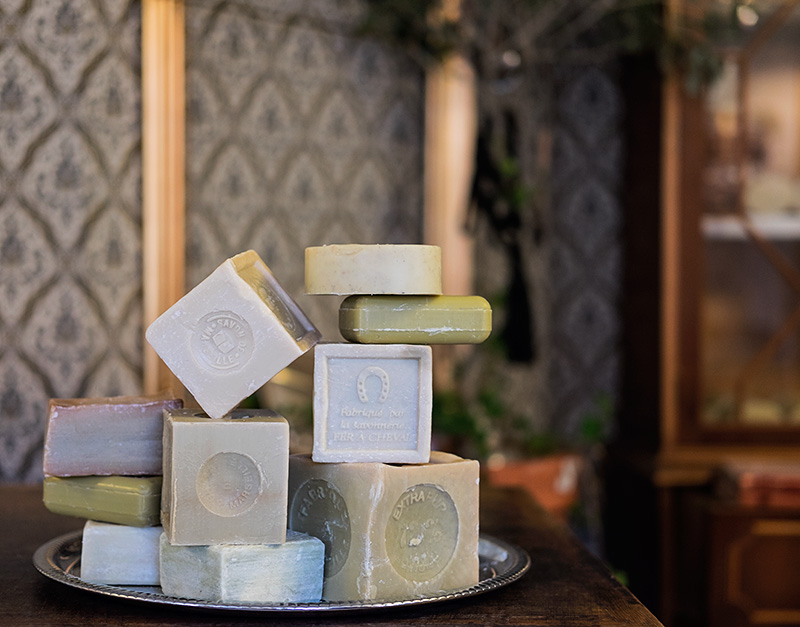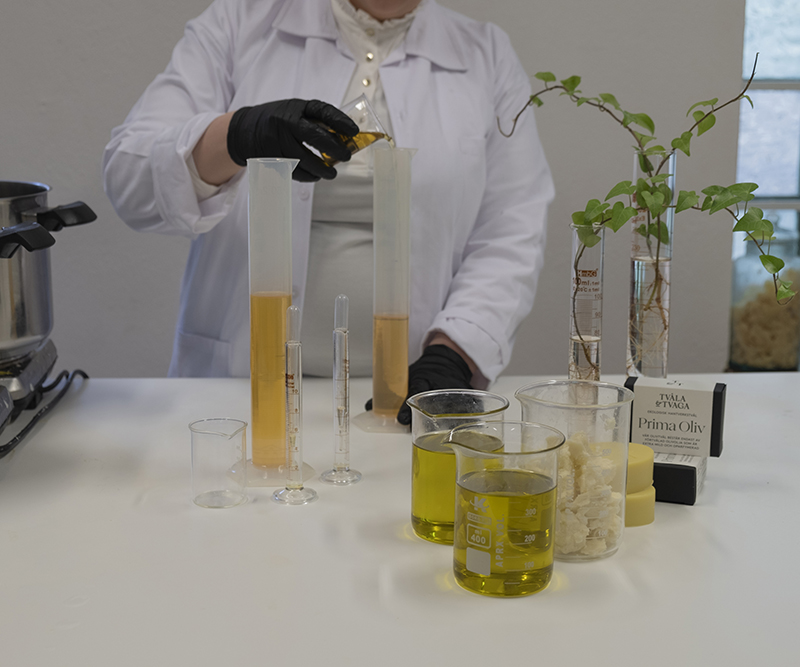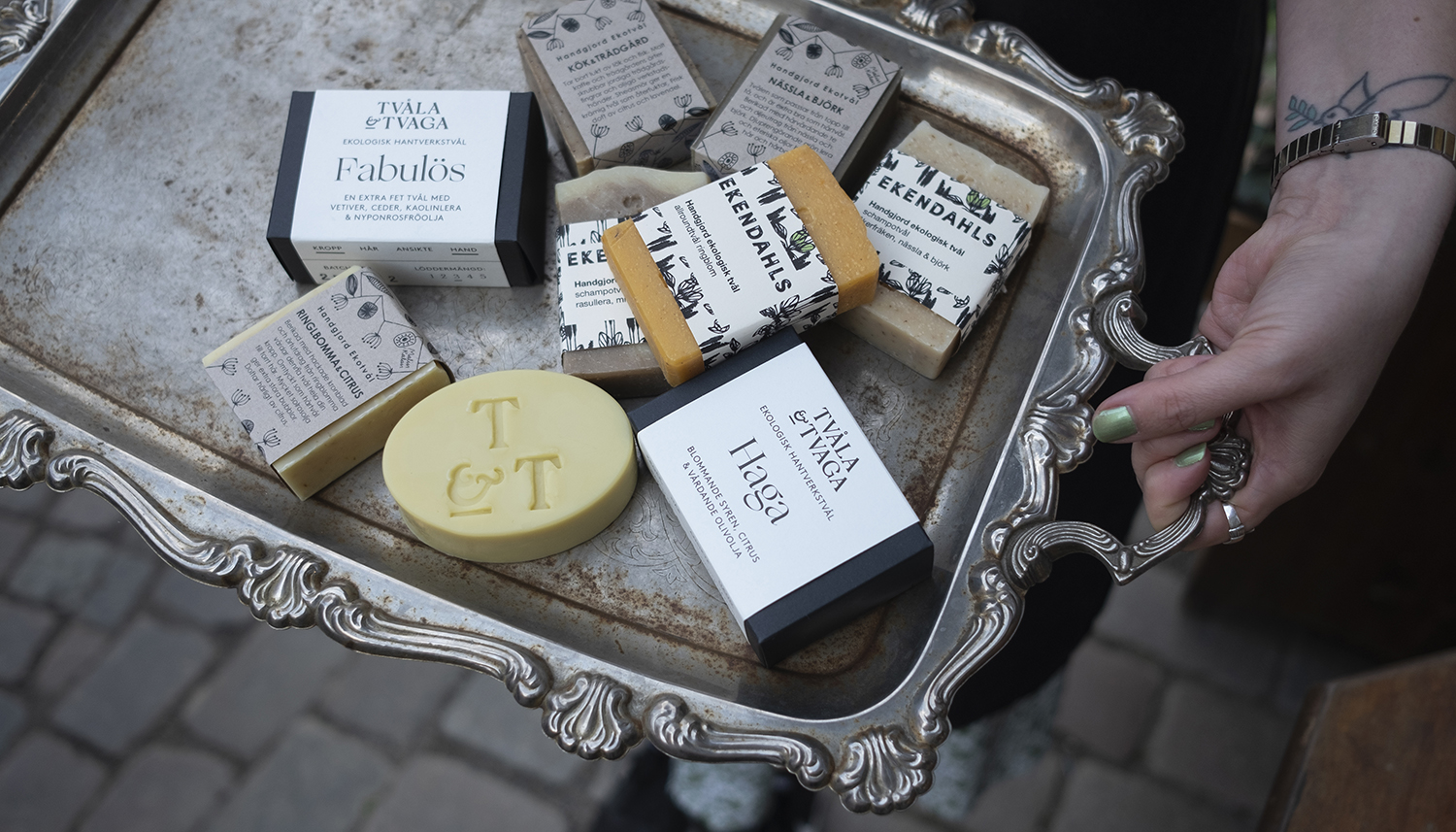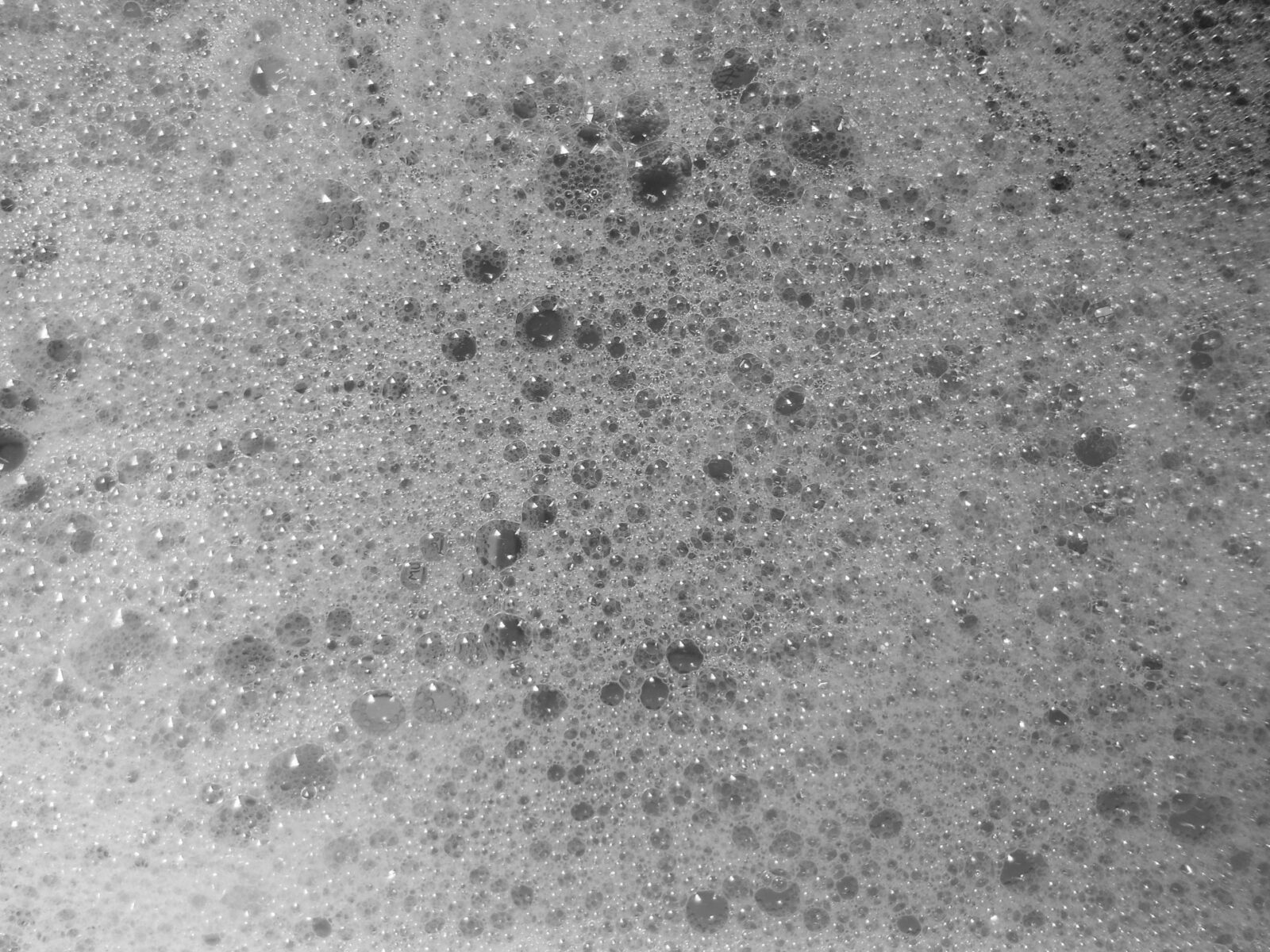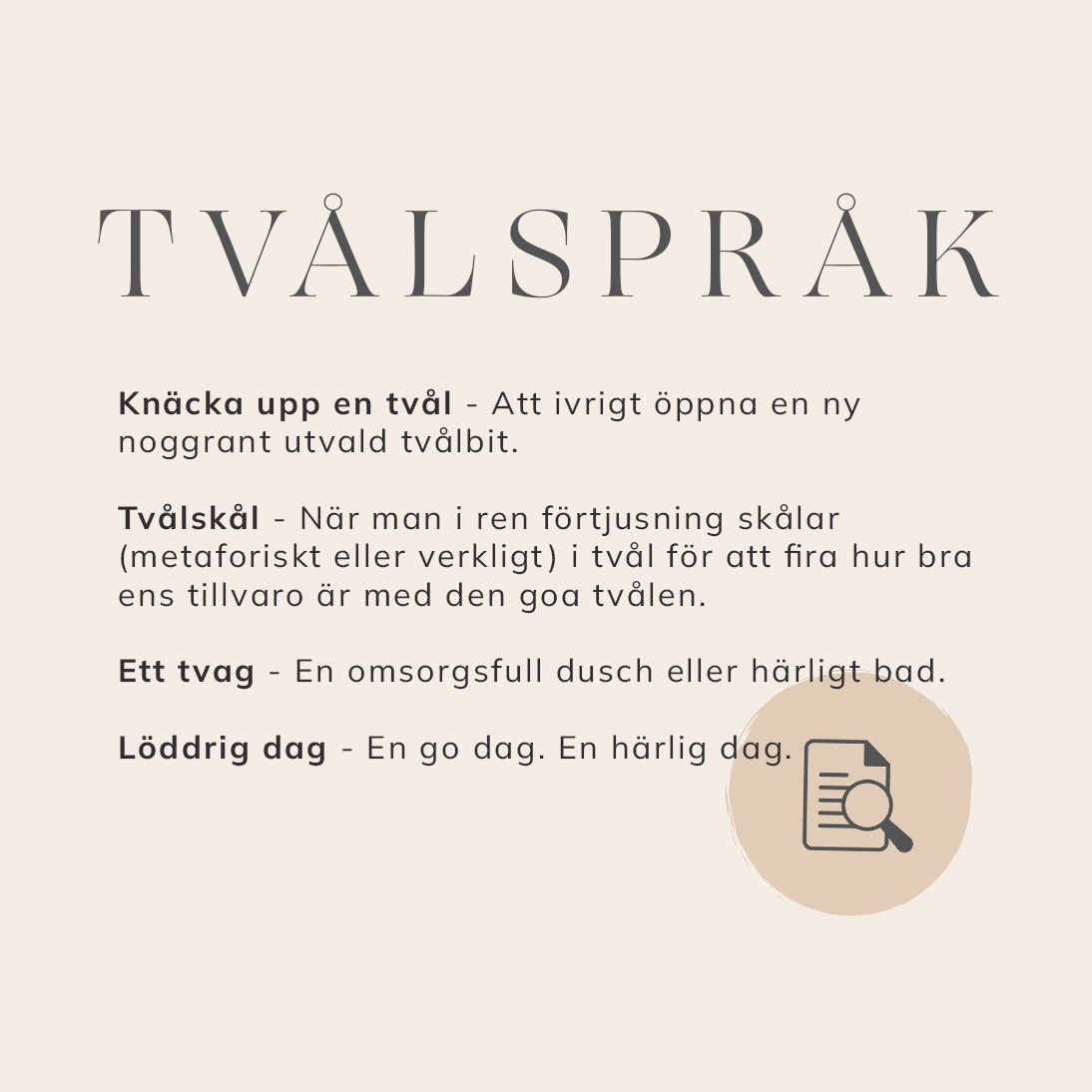About soap
Soap is a fantastic product and absolutely indispensable for the everyday life of modern man, the soap makes ... read more here.
It is believed to have all started around 3000 BC in Mesopotamia, and the oldest recorded sowing recipe ... read more here.
Soap is chemically an alkaline salt created by mixing a strong base with a . read more here.
The path to a finished soap can look a little different and it is not obvious which ... read more here.
Solid/hard bad soap can be composed in different ways. Either because a basically good oil ... read more here.
For a true soap nerd, some words are more important than others, if you ask us at Soap & Soap. ... read more here.
Frequently asked questions about soap
A soap that sits in water is not a happy soap. Always leave it on a soap dish with large holes or an absorption function. A tip with angular soaps is to stand them on end so that as little surface area as possible is against the barrel. Cold process soap naturally contains more glycerine, which is a moisture binder. This is what makes cold process soaps dissolve more easily and can feel a little softer, but at the same time they are always a little greasier because of the glycerine. A soap that feels soft even before you start using it can benefit from being stored for a few weeks to make it firmer and less slimy.
Yes, as long as it is a really good soap. Good soap will not dry out or irritate your skin. A really mild soap will not wash away all of the skin's own oil and will therefore be gentle. Tip. Our own Pure Olive with Shea Butter is really lovely for face washing.
It simply means soap on olive oil. When fatty acids are mixed with lye, a saponified version of the oil is created.
Glycerine is created naturally in the saponification process and should always be present in natural soap, in bad soap it is removed. The glycerine is a moisture binder and makes the soap greasier and the user happier.
Yes, several of them. Firstly, our own Pure Olive and Pure Olive + Shea. The classics Marseilles soap and Aleppo soap are also unscented.
The most common myth about solid soap. The answer is both yes and no, bad soap dries out while good soap does not. Needless to say, Soap & Soap only handles good soap.
The real winner from all perspectives is the solid soap. Good liquid soap, like solid soap, is made from beneficial vegetable oils, and is of course just as good for the skin. However, a liquid product needs to be preserved and this is something many people are sensitive to. With solid soap, we save the environment on plastic packaging and unnecessary water. In addition, the solid soap is much thicker, usually lasts longer and is a little more luxurious to lather with.
Living Naturallys shampoo soaps are great for cleaning both hair and scalp. They are perfectly balanced to hair and do not give a strange feeling after washing. The Aleppo soap is also a favorite well worth trying, also wonderful for the whole body. Washing your hair with good natural soap is great in many ways, your scalp feels fantastic and our environment avoids another plastic bottle. Dare to try it!
See soap as a multi-product and dare to test it out. There is really no difference between what we call soap, soap, shower cream or shampoo - all are created to clean and replenish. The main thing is that the soap is a natural soap made from oils and as long as it is, you can use it for just about anything that needs cleaning. A household could survive on a single bar of soap, talk about environmentally friendly! Tip! Detergent: Grate soap and put in the washing machine for natural detergent. Soap: Grate a small piece of soap and mix in hot or boiling water, leave for a while, ready.
Liquid: Natural liquid soaps are very mildly preserved and therefore last shorter. Count 1-2 years after opening the package. Scent: If the scent is intact, the soap is okay.
Solid: 1-5 years, or more. Solid soap is great to stockpile, store in cabinets and closets for a pleasant scent spread. An old solid soap can get yellow spots and smell strange, it is a sign that loose fats in the soap have begun to harden. Nevertheless, it is not dangerous to use the soap.
